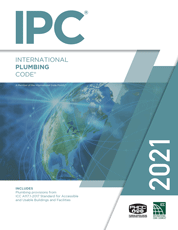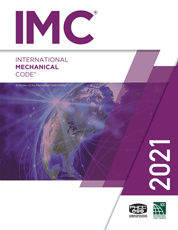
The International Code Council’s Plumbing and Mechanical Codes Are Paving the Way for More Resilient Communities
The PMG codes are a vital part of a complete building safety system that assures resiliency and sustainability.
As hazardous events continue to grow in both frequency and severity, the need to create and maintain a resilient built environment becomes increasingly important. A resilient building is built to withstand the major impacts of hazardous events such as earthquakes, hurricanes, floods, tornadoes and wildfires.
Adopting and implementing modern and up-to-date building codes can help to minimize the damage caused by these events and reduce the risk of injuries, loss of life and costly repairs.
Building Resiliency Within the Plumbing and Mechanical International Codes®
The PMG codes are a vital part of a complete building safety system that assures resiliency and sustainability. When adopted as a family of codes, alongside the other I-Codes®, they provide a consistent and cohesive system of regulations that designers, contractors, builders and regulators can rely on worldwide.
The Federal Emergency Management Agency (FEMA) recognizes the I-Codes within their Consensus-Based Codes, Specifications and Standards for Public Assistance (CBCSS) document for the construction of homes and buildings that are hazard-resilient with specific references to the International Plumbing Code® (IPC®) and the International Mechanical Code® (IMC®).

The International Plumbing Code
The IPC is the only model plumbing code listed in the CBCSS and is the most widely adopted plumbing code across the United States. The IPC is also used in Saudi Arabia, the United Arab Emirates, Columbia, Mexico and other countries around the world.
It includes numerous design and installation options that provide flexibility for design professionals and builders and addresses backflow prevention, fixtures and fittings, water supply and distribution piping, water heaters and non-potable water systems.
The IPC resiliency provisions address the following areas:
- Fire
- Flood/Water Intrusion
- Seismic
- Wind
- Snow and Ice
- Protection of the Potable Water Supply
- Water and Energy Efficiency
- Passive Survivability

The International Mechanical Code
Like the IPC, the IMC is the only model mechanical code listed in the CBCSS and is considered by industry experts as the most resilient mechanical code available.
The IMC covers topics such as ventilation, exhaust systems, duct systems, air combustion, refrigeration and much more.
The IMC resiliency provisions address the following areas:
- Fire
- Flood/Water Intrusion
- Seismic
- Wind and Rain
- Snow and Ice
- Mold and Mildew
- Energy Efficiency
- Indoor Air Quality
- Passive Survivability
Support on Plumbing and Mechanical Codes
The Code Council’s PMG I-Codes are updated every three years through a robust development process to adjust for the latest advancements in building and weather science. These updates also aim to address any lessons learned from recent hazardous events.
Understanding the importance of adopting and implementing up-to-date codes and standards is the first step in helping to create a more resilient and sustainable built environment. The Code Council has a PMG team of technical experts and resources available to help throughout the entire code adoption process.
To learn more about the Code Council’s plumbing, mechanical, fuel gas, swimming pool and spa and private sewage disposal codes, visit here.







